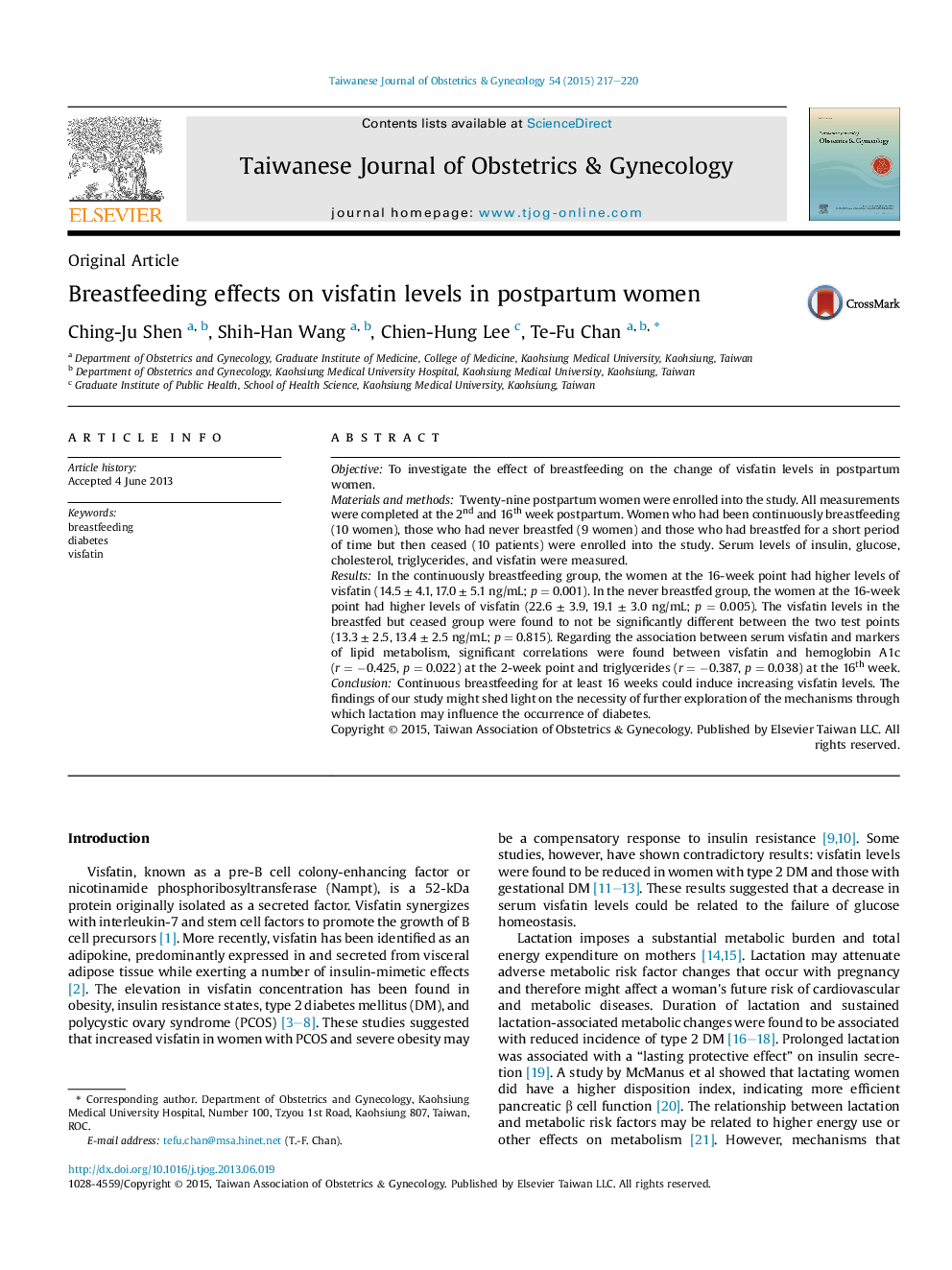| Article ID | Journal | Published Year | Pages | File Type |
|---|---|---|---|---|
| 3975082 | Taiwanese Journal of Obstetrics and Gynecology | 2015 | 4 Pages |
ObjectiveTo investigate the effect of breastfeeding on the change of visfatin levels in postpartum women.Materials and methodsTwenty-nine postpartum women were enrolled into the study. All measurements were completed at the 2nd and 16th week postpartum. Women who had been continuously breastfeeding (10 women), those who had never breastfed (9 women) and those who had breastfed for a short period of time but then ceased (10 patients) were enrolled into the study. Serum levels of insulin, glucose, cholesterol, triglycerides, and visfatin were measured.ResultsIn the continuously breastfeeding group, the women at the 16-week point had higher levels of visfatin (14.5 ± 4.1, 17.0 ± 5.1 ng/mL; p = 0.001). In the never breastfed group, the women at the 16-week point had higher levels of visfatin (22.6 ± 3.9, 19.1 ± 3.0 ng/mL; p = 0.005). The visfatin levels in the breastfed but ceased group were found to not be significantly different between the two test points (13.3 ± 2.5, 13.4 ± 2.5 ng/mL; p = 0.815). Regarding the association between serum visfatin and markers of lipid metabolism, significant correlations were found between visfatin and hemoglobin A1c (r = −0.425, p = 0.022) at the 2-week point and triglycerides (r = −0.387, p = 0.038) at the 16th week.ConclusionContinuous breastfeeding for at least 16 weeks could induce increasing visfatin levels. The findings of our study might shed light on the necessity of further exploration of the mechanisms through which lactation may influence the occurrence of diabetes.
